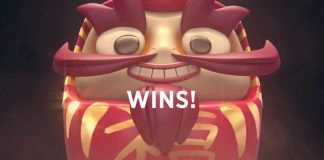Light & Wonder recently labelled the ongoing Dragon Train litigation as a “late-quarter disruption,” with impacts anticipated in Q4.
In the company’s Q3 earnings call, CFO Oliver Chow explained that the timing of the injunction filed by Aristocrat in late September means the firm’s fourth-quarter performance will feel more of an impact than Q3.
Aristocrat’s lawsuit alleges that Light & Wonder’s Dragon Train game infringes on intellectual property tied to Aristocrat’s Dragon Link title. Following a court order, Light & Wonder has removed or replaced 95% of its Dragon Train units.
Chow clarified the impact: “For Q3, we saw minimal disruption due to the timing of the injunction, which took effect in late September. There were modest conversion costs that will impact Q4, with a slight reduction in RPD (Revenue per Day) due to conversion timing. While corporate costs related to legal expenses will increase, we do not anticipate any material change to the guidance provided last year.”
He also projected “low single-digit year-over-year EBITDA growth in Q4,” alongside over 10% growth for the full year, with expectations to return to normalised growth in 2025.
When asked about a new version of Dragon Train, CEO, Matt Wilson, responded: “The original game clearly had strong market demand. The issue centred on a narrow part of the game, and we’re actively working on variations for our portfolio.
“However, we won’t reveal exact timelines, as competitors monitor our announcements closely. Expect to see Dragon Train’s return within a year.”
Wilson also addressed the company’s swift response to the injunction: “We disagreed with the court’s ruling but complied quickly, removing units and minimising impact. We converted 95% of our US Dragon Train installs to other games like Ultimate Fire Link and Invaders from Planet Moolah, limiting impact to fewer than 100 units.”
Light & Wonder is facing mounting legal challenges over alleged intellectual property violations, with lawsuits filed by Evolution Gaming and the previously mentioned Aristocrat.
The two cases, both centred on claims of IP infringement, underscore the stakes involved as Light & Wonder seeks to defend its content portfolio and maintain operational stability.
In the Evolution lawsuit, the firm accuses Light & Wonder of copying its popular Lightning Roulette game by creating Roulette X.
Evolution filed the suit in June, claiming that it had initially collaborated with Light & Wonder to launch a land-based version of Lightning Roulette, only for Light & Wonder to withdraw from the partnership and release its own version.
Light & Wonder moved to dismiss the case, but Nevada District Court Judge Elena Youchah has yet to rule on the request.
While Judge Youchah considers the motion to dismiss, she has denied Light & Wonder’s attempt to delay the discovery process, suggesting the case may proceed.
“When deciding whether to issue a stay, a court must take a ‘preliminary peek’ at the merits of the dispositive motion,” Youchah wrote in her decision. She added that “a preliminary peek at Defendants’ Motion to Dismiss does not convince the Court that Defendants will win dismissal of all claims asserted by Plaintiffs.”
Furthermore, Youchah indicated scepticism over Light & Wonder’s argument that the dispute belongs in arbitration, hinting that IP claims may fall outside the agreement’s scope.
If the dismissal request is denied, it will be the second active legal battle Light & Wonder faces, as Aristocrat has also brought a suit against the company.
With strong Q3 earnings buoying investor confidence, Light & Wonder now faces the dual task of managing these legal risks while aiming to sustain momentum in an increasingly IP-focused market.
A dual task could have turned into a trio of legal problems as in July of this year, Light & Wonder witnessed itself on the other side of a lawsuit, as the firm brought a lawsuit against Zeroo Gravity Games, where it claimed the Palo Alto-based company’s Three Stuffed Swine slot game was a “blatant ripoff” of its title Rich Little Pigs.
However, in the tailend of October, Light & Wonder voluntarily withdrew its copyright claim against ZGG.
In comments made to SBC Americas, Light & Wonder confirmed that ZGG has permanently removed the game title in question and modified several other games that the former believed infringed on its intellectual property rights.





